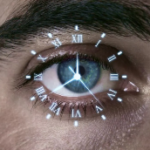Glaucoma FAQs
Here are answers to some of the most common questions we get about glaucoma.
My father was recently diagnosed with glaucoma. He doesn’t think it is a big deal and believes people don’t go blind from glaucoma. I’ve heard otherwise. Can you please clear this up for me; do people go blind from glaucoma?
You are correct! Glaucoma can cause blindness if left untreated, and if treated but not sufficiently, approximately 10 percent of people with glaucoma still experience loss of vision. Glaucoma is the second leading cause of blindness in the world. Please make sure your father understands that!
Glaucoma is a disease in which damage to the optic nerve leads to progressive, irreversible vision loss. Glaucoma is not curable, and vision lost cannot be regained, but with medication, laser procedures, and/or surgery, it is possible to halt further loss of vision.
Diagnosis is the first step for your father preserving his vision—the second is treatment. It is important that your father schedule an appointment with a board-certified ophthalmologist who is a fellowship trained glaucoma specialist. There are new procedures that are minimally invasive and have helped thousands of glaucoma patients preserve their vision. Each patient is different, but a glaucoma specialist can work with your father to find the right treatment for his situation.
I’ve heard that the cause of glaucoma can be genetic. Is that true?
The cause of glaucoma is usually genetic, even without a family history of glaucoma. If you have diabetes or are of African American or Latino descent, you may have more chance of having glaucoma. In some eyes there is a failure to maintain a correct balance between the amount of fluid produced inside the eye and the amount that drains away. When the fluid is unable to sufficiently drain to regulate intraocular pressure (IOP), the eye pressure can rise to high levels, damaging the optic nerve and causing blindness. In other eyes, even the normal eye pressure is too high for the optic nerves, again resulting in blindness. Therefore, early diagnosis and treatment are vital to preserving vision, and a normal eye pressure is not sufficient to exclude the possibility of glaucoma.
I have a tough time remembering my glaucoma medication drops. Are there other treatment options?
Traditional treatment options for glaucoma include prescription eye drops, laser treatments, and glaucoma surgeries such as iStent or tube shunt implantation.
However, newer minimally invasive procedures have become increasingly popular among patients and surgeons. These exciting treatment choices for glaucoma are called Minimally Invasive Glaucoma Surgeries (MIGS). These procedures provide patients with options that are, in general, safer and have faster recovery times than typical treatment options such as:
iStent®
More recently, the FDA approved the use of the iStent®, which is the smallest medical device implanted in the human body to date. It is a titanium stent that is implanted into the eye internal drainage system to improve drainage of the eye fluid and lower the eye pressure. iStents® are typically implanted during the time of cataract surgery.
I have sleep apnea and use a CPAP. Is this safe for glaucoma patients?
Recently, new data has emerged indicating that a CPAP mask, used for sleep apnea, could promote a devastating eye infection following Trabeculectomy. It appears that very aggressive mouth bacteria can infect the eye via the airflow from the CPAP mask. If these mouth bacteria gain access into the eye it could lead to blindness and loss of the eye within one to several days!!!
Thus, if you have had Trabeculectomy (and possibly tube shunt) surgery any time in the past, we strongly advise you to stop using the CPAP mask, and contact your physician that prescribed you with the CPAP mask to explore alternatives to the CPAP mask. It is possible, but not proven, that using other types of devices for sleep apnea that do not allow air flow towards the eye at any time, may be a safer alternative.
Please note that if your glaucoma surgery was the “Trabectome” procedure or iStent implantation your risk appears to be low- equivalent to those who had a major glaucoma surgery.
How Surgery Can Impact a Glaucoma Diagnosis
Why Would a Glaucoma Specialist do my Cataract Surgery?
Next Steps
If you have a family history of glaucoma, have risk factors for glaucoma (such as near-sightedness, diabetes, or of African American or Latino descent), or have been informed you may have glaucoma, it is important to schedule an appointment. The sooner we can diagnose and treat glaucoma, the better the outcome.
Get in touch with us today at our nearest location to you.

